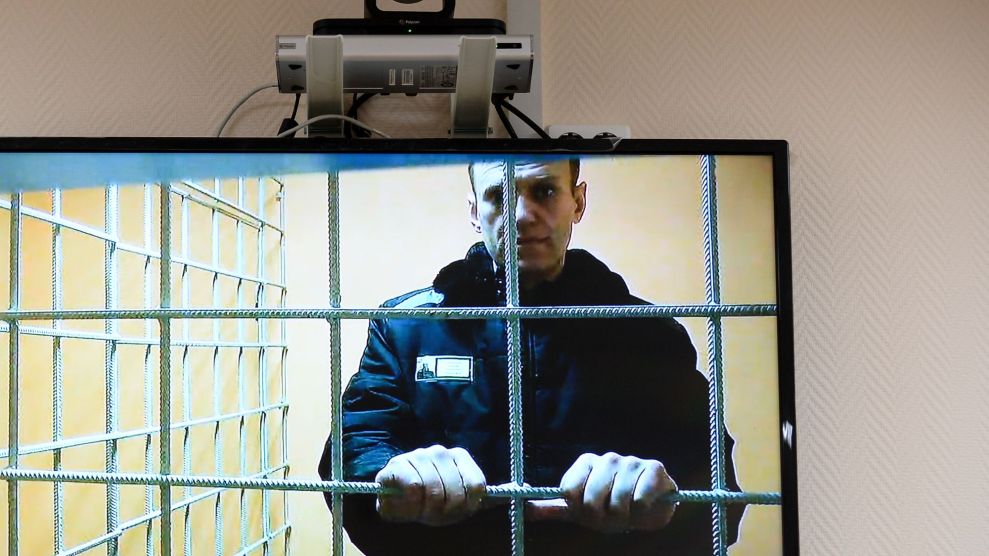
Russian opposition leader Alexei Navalny looks at a camera while speaking from a prison via a video link.Denis Kaminev/AP
On Wednesday, Alexei Navalny, the Russian dissident and persistent thorn in Vladimir Putin’s side, called on Russians to take to the streets to protest the invasion of Ukraine, urging them to actively resist what he deemed “the aggressive war against Ukraine unleashed by our obviously insane tsar.”
“It’s the third decade of the 21st century, and we are watching news about people burning down in tanks and bombed houses,” he tweeted through a spokesperson. “We are watching real threats to start a nuclear war on our TVs.”
1/12 We – Russia – want to be a nation of peace. Alas, few people would call us that now.
— Alexey Navalny (@navalny) March 2, 2022
Thousands of Russians have already protested the invasion of Ukraine, defying stringent anti-protesting laws that threaten them with fines and jail time. However, Navalny urged an even fiercer and more intense resistance than has already appeared.
“Each arrested person must be replaced by two newcomers,” he wrote. “If in order to stop the war we have to fill prisons and paddy wagons with ourselves, we will fill prisons and paddy wagons with ourselves.”
Navalny, an anti-corruption activist and lawyer, has consistently been cited as one of the most significant Kremlin critics of the last decade. While the opposition movement he leads lacks power within Russia, he has previously shown an ability to rally young protesters and garner support through social media.
In 2020, Navalny was poisoned with the neurotoxin Novichok, which foreign governments have accused Russia of using in other assassinations of defectors and dissidents. (Russia has denied that it is responsible for the assassinations.) After falling into a coma and receiving medical treatment in Germany, Navalny returned to Moscow where he was swiftly jailed for violating his parole on what he claims to be trumped-up charges of embezzlement. Navalny directly accused Putin of ordering his murder although the Kremlin has denied that he had any involvement with the attempted assassination.
Navalny’s poisoning and subsequent imprisonment sparked some of the most widely attended anti-government demonstrations in Russia in over a decade, with tens of thousands of young protesters braving police and subzero temperatures. However, the opposition’s ability to wage a successful resistance has been hampered by fierce crackdowns on protesters and limited support outside major cities.
















